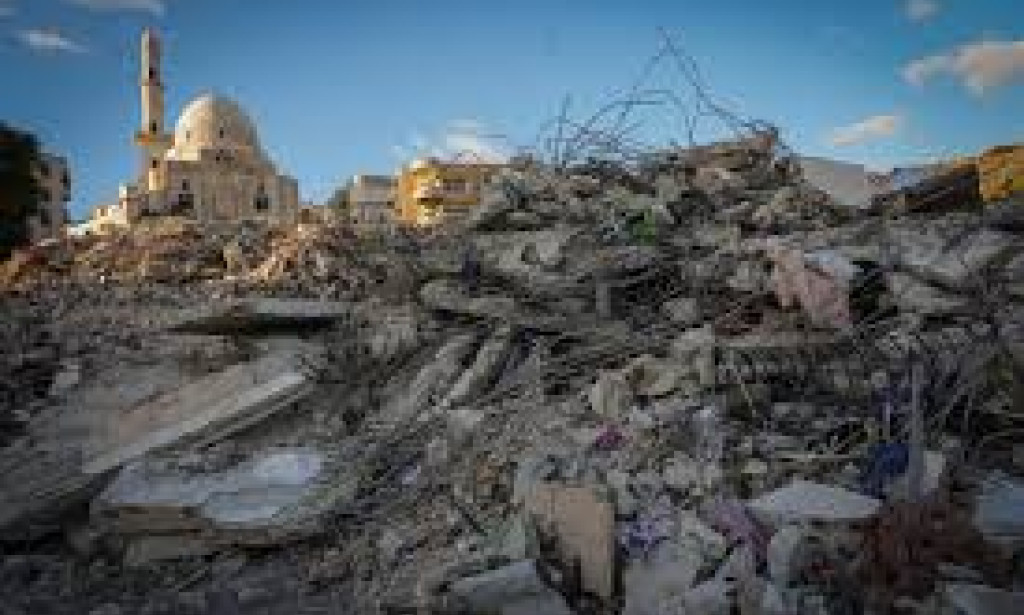Title: The Tragic Reality of Genocide: Unraveling the Humanitarian Crisis
Introduction:
Genocide, a term coined during the aftermath of World War II, represents one of the darkest chapters in human history. It is not an abstract concept but a harsh reality that has plagued societies across different continents. Defined as the systematic and intentional destruction of a racial, ethnic, religious, or national group, genocide leaves an indelible mark on both the affected communities and the collective conscience of humanity.
Historical Context:
Throughout history, instances of genocide have left scars on the fabric of civilization. The Holocaust, perpetrated by the Nazis during World War II, stands as a chilling example. Millions of Jews, along with other marginalized groups, were systematically exterminated in a horrifying display of hate-fueled violence. The haunting images of concentration camps and the testimonies of survivors serve as a somber reminder of the depths to which humanity can descend.

Rwandan Genocide:
The 1994 Rwandan Genocide is another tragic episode that unfolded as the international community looked on in disbelief. In just 100 days, an estimated 800,000 people, predominantly Tutsis, were mercilessly slaughtered by their fellow countrymen, the Hutus. Political and ethnic tensions, fueled by a history of division, exploded into a bloodbath that scarred the nation and challenged the world's commitment to preventing such atrocities.
Modern Challenges:
Genocide is not confined to history books; it persists in contemporary conflicts, demanding global attention. The ongoing Rohingya crisis in Myanmar is a stark reminder that the world has not fully learned from past mistakes. The Rohingya, a Muslim minority, have faced persecution and violence, causing a mass exodus of refugees. The international community grapples with how to respond effectively to prevent further atrocities and protect vulnerable populations.
Warning Signs and Root Causes:
Understanding the warning signs and root causes of genocide is crucial for prevention. Societal divisions, fueled by hatred and discrimination, often serve as breeding grounds for violence. Political manipulation, economic disparities, and historical grievances contribute to a toxic environment where animosities can escalate into mass atrocities. Recognizing these factors early on allows for targeted intervention and the implementation of preventative measures.
Role of the International Community:
The responsibility to prevent and respond to genocide extends beyond individual nations. The international community plays a vital role in holding perpetrators accountable and providing support to affected populations. However, challenges arise when geopolitical interests, diplomatic complexities, and the lack of a unified response hinder decisive action. The need for a coordinated global effort to address and prevent genocide remains a pressing concern.
Humanitarian Responses:
Humanitarian organizations and individuals on the ground play a crucial role in responding to genocide. Their efforts extend beyond delivering aid to addressing the long-term consequences, such as trauma and displacement, that survivors endure. Yet, these endeavors often face obstacles, from limited resources to the inherent dangers of operating in conflict zones. A more comprehensive and sustained international commitment is essential to bolster these initiatives.

Education as a Tool for Prevention:
Education emerges as a powerful tool in preventing genocide. By promoting tolerance, understanding, and empathy, societies can create a foundation that resists the seeds of hatred. Teaching the history of past genocides allows individuals to grasp the consequences of unchecked prejudice and discrimination. Empowering future generations with knowledge becomes a crucial step in breaking the cycle of violence.
Conclusion:
Genocide remains a harrowing reality that demands our unwavering attention and concerted efforts. From the Holocaust to the Rwandan Genocide and ongoing crises, the world must confront the deep-seated issues that give rise to such atrocities. Through collective action, education, and a commitment to human rights, we can strive to prevent genocide and build a world where the haunting echoes of past tragedies do not reverberate into the future.


You must be logged in to post a comment.